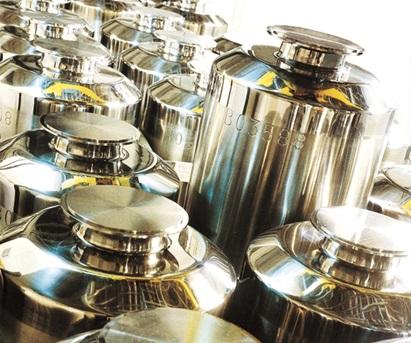From thought bubble to AUKUS
Posted By Graeme Dobell on August 26, 2024 @ 16:55

The AUKUS quest for nuclear-powered submarines is a thought bubble that turned into a huge project, driven by ambition and beset by anxiety.
Canberra’s instant political consensus is a striking element of how quickly the bubble became policy. The Labor-Liberal unity ticket was set at the moment the AUKUS vision was announced by Australia, the United Kingdom and United States. The three-year anniversary will come next month, September 15.
The distance covered was emphasised by Deputy Prime Minister and Defence Minister Richard Marles when he told Parliament on 12 August: ‘When we came to power, AUKUS was really not much more than a thought bubble [1], but since then we have been turning it into a reality.’ Marles says the thought is sailing along an ‘actual pathway’, steered by the Australian Submarine Agency [2], established on 1 July last year.
Some thought! Some bubble! Yet a lot more reality must be traversed. Even the believers see an extraordinary journey—the Optimal Pathway [2], an outline plan for project execution, stretches out to 2053, with the first Australian-built AUKUS submarine due in ‘the early 2040s’.
As the AUKUS voyage reached or approached two official milestones, in Canberra the Academy of Social Sciences in Australia held a symposium [3] on the assumptions and implications of the strategic partnership on 15 and 16 August. The academy’s two-day effort did a fine job of examining how far the thought bubble had floated.
The milestones were the signing of a naval nuclear propulsion treaty [4] providing the legal basis for AUKUS and the creation of an AUKUS trade zone for exchange of defence goods and technology.
Marles signed the nuclear propulsion treaty in Washington on 5 August, describing it as ‘a foundational part [1] of the legal underpinning’ of building the nuclear-powered submarine. The trilateral agreement will operate until 2075. The pact allows the transfer of nuclear propulsion plants to Australia, makes Australia responsible for ‘management, disposition, storage, and disposal of any spent nuclear fuel and radioactive waste’ and gives an Australian indemnity to the US and Britain for any ‘liability, loss, costs, damage or injury’ from nuclear risks.
The treaty gives Britain and the US the right to terminate AUKUS and demand the return of nuclear material and equipment. The termination clause can be used if Australia seeks to reprocess nuclear material, builds a nuclear weapon or breaches its obligations to the Non-Proliferation Treaty and the International Atomic Energy Agency. As part of its non-proliferation pledge, Australia is negotiating a treaty with the IAEA to meet its Article 14 comprehensive safeguards obligations [5].
The other milestone is that from 1 September, AUKUS will have a new framework allowing freer trade of equipment and expertise. The exemptions remove licencing requirements for most controlled goods, technologies and services.
The AUKUS zone will have licence-free trade for 70 percent of defence exports from the US to Australia that are subject to arms traffic regulations, and 80 percent of defence trade under US export regulations. The deal eliminates the need for 900 export permits covering Australian exports to the US and Britain, valued at $5 billion annually. Taking lessons from the AUKUS effort to cut red tape, the US has also set out principles to build the Indo-Pacific defence industry base [6].
The Academy of Social Sciences symposium looked at the political, legal, strategic and economic aspects of the nuclear-powered submarine.
While Canberra has made a treaty commitment to store AUKUS nuclear waste, Maria Rost Rublee said Australia was yet to build a nuclear culture and create a social licence for storage. The Melbourne University international relations professor said that if Australia couldn’t build that culture, the US and Britain would not transfer the technology. ‘This weighs heavily on Australian minds,’ she said.
What constituted appropriate safety and risk for long-term storage of military-grade nuclear waste from nuclear-powered submarines, she said, was not just a technical issue but a social and political decision. ‘This is not going to be easy. The technical and geological problems can be solved,’ Rublee said. ‘There have been many proposals around the world for nuclear waste storage. All of them fail for lack of social licence.’
The government declaration that Australia’s storage would be on defence land couldn’t avoid issues of community consent and understanding, Rublee said, pointing to the many failed attempts around the world to establish long-term nuclear storage sites. Rublee noted those unsuccessful efforts had created an acronym for the storage failure: DADA [7]. The DADA cycle is to Decide on a site, Announce it, then Defend it against community resistance that eventually leads the government to Abandon it.
Canberra’s treaties and optimal pathways will have to undergo many versions of that DADA test. The next column by this author will report on how the Academy discussed the submarine Australia needs and the Asia-Anglosphere dimensions of AUKUS.
Article printed from The Strategist: https://aspistrategist.ru
URL to article: /from-thought-bubble-to-aukus/
URLs in this post:
[1] thought bubble: https://www.aph.gov.au/Parliamentary_Business/Hansard/Hansard_Display?bid=chamber/hansardr/28022/&sid=0243
[2] Australian Submarine Agency: https://www.asa.gov.au/aukus/optimal-pathway
[3] symposium: https://socialsciences.org.au/events/aukus-assumptions-and-implications/
[4] naval nuclear propulsion treaty: https://www.asa.gov.au/sites/default/files/2024-08/Agreement%20among%20the%20Governments%20of%20Australia%20UK%20and%20US%20for%20cooperation%20related%20to%20naval%20nuclear%20propulsion%20v2.pdf
[5] obligations: https://www.iaea.org/newscenter/pressreleases/director-general-statement-in-relation-to-aukus-announcement
[6] defence industry base: /building-the-indo-pacific-defence-industry-base/
[7] DADA: https://www.lowyinstitute.org/the-interpreter/aukus-what-do-nuclear-waste
Click here to print.